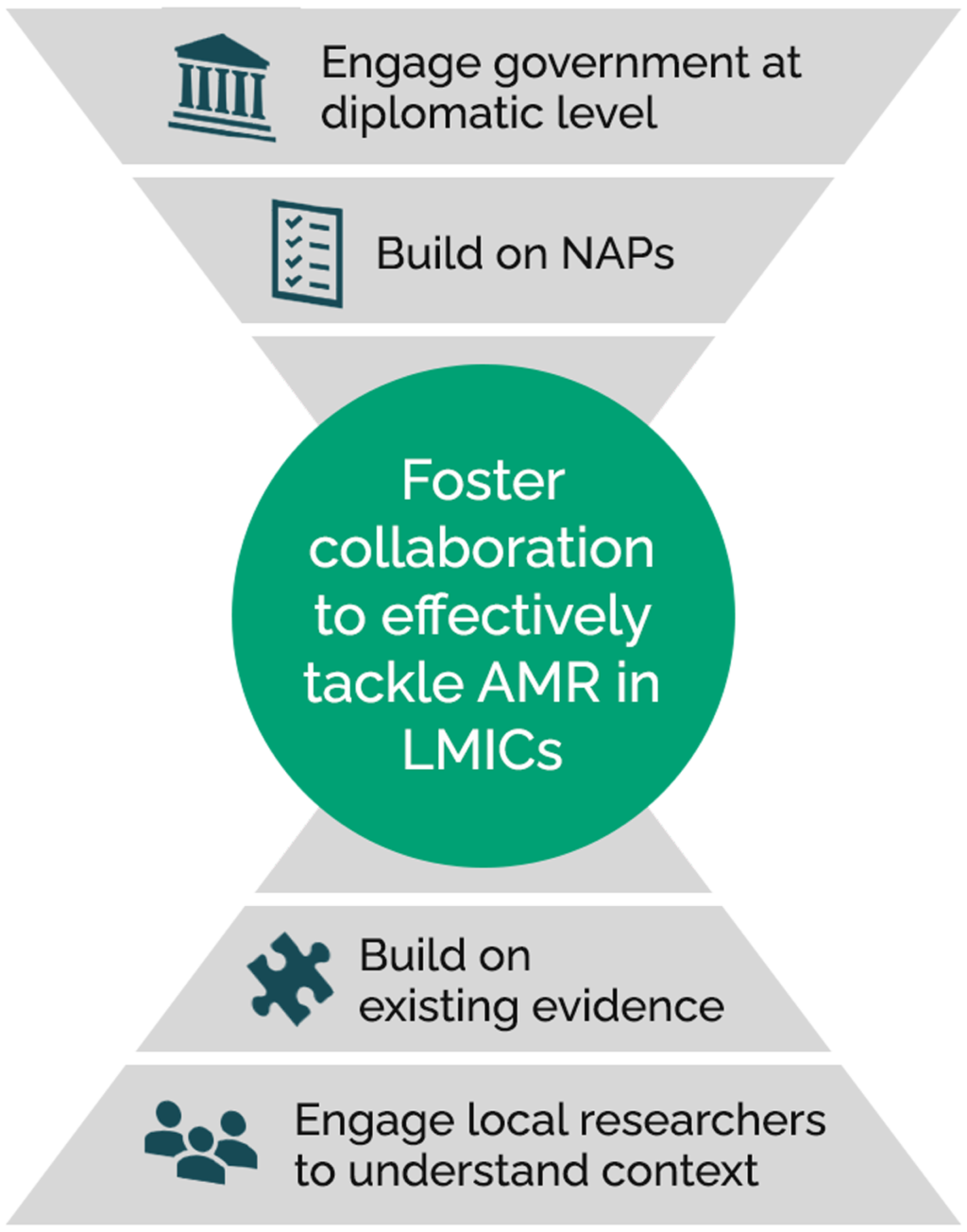But how?
Each country is different both in its approach to tackling AMR and in the type of issues that accelerate AMR at a local level.
At ICARS, we simultaneously use top-down and bottom-up approaches, engaging with government ministries while involving scientists and practitioners throughout the process.
- Through visits, workshops, frequent discussions and reviewing existing evidence, we – together with the country partners – spend time to gain a deep understanding of the context surrounding the issue at country-level and understand the key challenges.
- By working with ministries as well as local-level stakeholders to understand the context, we ensure that the Implementation Research projects are tailored to respond to each country’s individual needs and challenges, and that activities are guided by the problems that countries are committed to solve rather than one-size-fits-all programmes.
Feasible solutions must furthermore be cost-effective, especially in an LMIC setting where resources are scarce. They should provide an incentive for stakeholders to implement them in practice. And perhaps most importantly, sustainable solutions require close attention to the enablers of behaviour change in the specific context. Only with actual behaviour change can solutions become sustainable and have true impact. Implementation Research is as such an important tool for increasing the effectiveness of solutions in the long-term. The LMIC ministries are responsible for the development and implementation of the project, with support and advice from ICARS. At the same time, a wide range of stakeholders are involved in the process from the beginning, be they practitioners, researchers or the private sector, to ensure buy-in and maximise the commitment for action from country partners. This results in a project plan that is co-developed with the country partners, and an effective implementation phase with efforts from all stakeholders.
While bringing together multiple stakeholders to tackle AMR together is not easy, it is our belief that such a comprehensive approach is essential for bringing evidence into action and leads to sustainable, long-lasting behaviour change.
Why focus on developing solutions in LMICs?
The vast majority of LMICs have developed National Action Plans (NAPs) on AMR, recognising the critical importance of preventing and containing resistance. Many LMIC governments are highly committed to addressing AMR but have severe resource and capacity constraints and thus require substantial development assistance to sustainably implement their NAPs at scale. ICARS provides funding and guidance to address these constraints and challenges through co-development of feasible, cost-effective, context-specific solutions in LMICs that are committed to mitigating AMR.
Framework for engagement
ICARS has developed a framework for engagement with national and international players in the AMR landscape. This includes a memorandum of understanding with the government of the country involved, ensuring political ownership and commitment to integrate solutions into national policies, programmes and practices.
As part of the framework, we leverage Denmark’s (and in the future other Founding Members’) diplomatic relations with LMICs to ‘open dialogue’ at the highest level, while strengthening partnerships with entities such as the UN bodies, NGOs, national and international initiatives, research institutes amongst others to ensure that ICARS has the capacity on the ground to deliver on our activities.
Ensuring commitment at the right levels
National commitment is crucial to ensure up-take and translation of interventions into sustainable action including national policies, programmes and practices. By combining a top-down and-bottom up approach, we simultaneously secure commitment from the government ministry level while rooting the projects in scientific research conducted at local and national levels.


